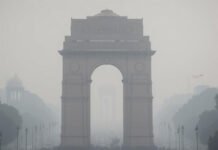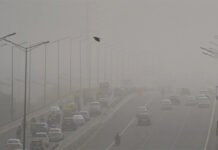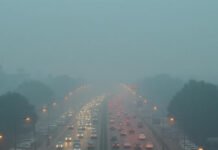The stifling air pollution in Delhi is not only posing a threat to people’s lives but is also badly affecting business. The effect of pollution is also visible on business. Praveen Khandelwal, National General Secretary of Confederation of All India Traders (CAT) and MP from Chandni Chowk Lok Sabha seat, in his statement issued on Tuesday, said that the issue of air pollution in Delhi is badly affecting the business of Delhi. Delhi traders are facing about 20 percent business loss. This is a big loss for business.
According to Khandelwal, due to rising pollution levels, consumers avoid going to crowded markets. This has led to a sharp decline in customer numbers in the markets. Steps like the odd-even scheme and restrictions on vehicle movement limit access to commercial areas. This has a direct impact on business. Restrictions imposed on diesel vehicles, especially trucks, disrupt the supply chain, causing delays in goods reaching markets. Logistics costs increase.
This situation can also have a negative impact on the supply of goods and services, as Delhi is the largest distribution hub in the country. Thousands of trucks bring goods to Delhi from other states. Similarly, the same number of trucks supply goods from Delhi to other states.
Small and medium traders in markets like Chandni Chowk, Karol Bagh, Lajpat Nagar, Connaught Place, South Extension, Sadar Bazar, Kamala Nagar, Pitampura will face a huge drop in revenue due to reduced customer numbers and supply chain problems. At the same time, businesses related to festivals and weddings, which depend on their peak sales time, suffer huge losses. The reason is that pollution restrictions are often imposed during these peak periods. Businesses have to bear additional costs on air purifiers, masks and other measures to ensure a safe environment for their employees and customers.
Traders face higher transportation costs due to the ban on commercial vehicles. Health problems due to pollution lead to reduced efficiency and absenteeism of the workforce, which has a negative impact on productivity. A large part of Delhi’s working class consists of migrant workers, who are often forced to leave the city due to poor living conditions. The government should involve trade organizations in the decision-making process to formulate balanced policies that minimize disruption.
Supply chain operations can be prevented from getting disrupted by introducing eco-friendly cargo solutions such as electric trucks. The losses of affected businesses can be minimized by providing them financial assistance or tax relief. Delhi’s trade sector, especially small traders, is being hit the hardest by the double burden of air pollution and regulatory restrictions. Collective efforts between the government and the business community are extremely necessary to address this serious issue.













